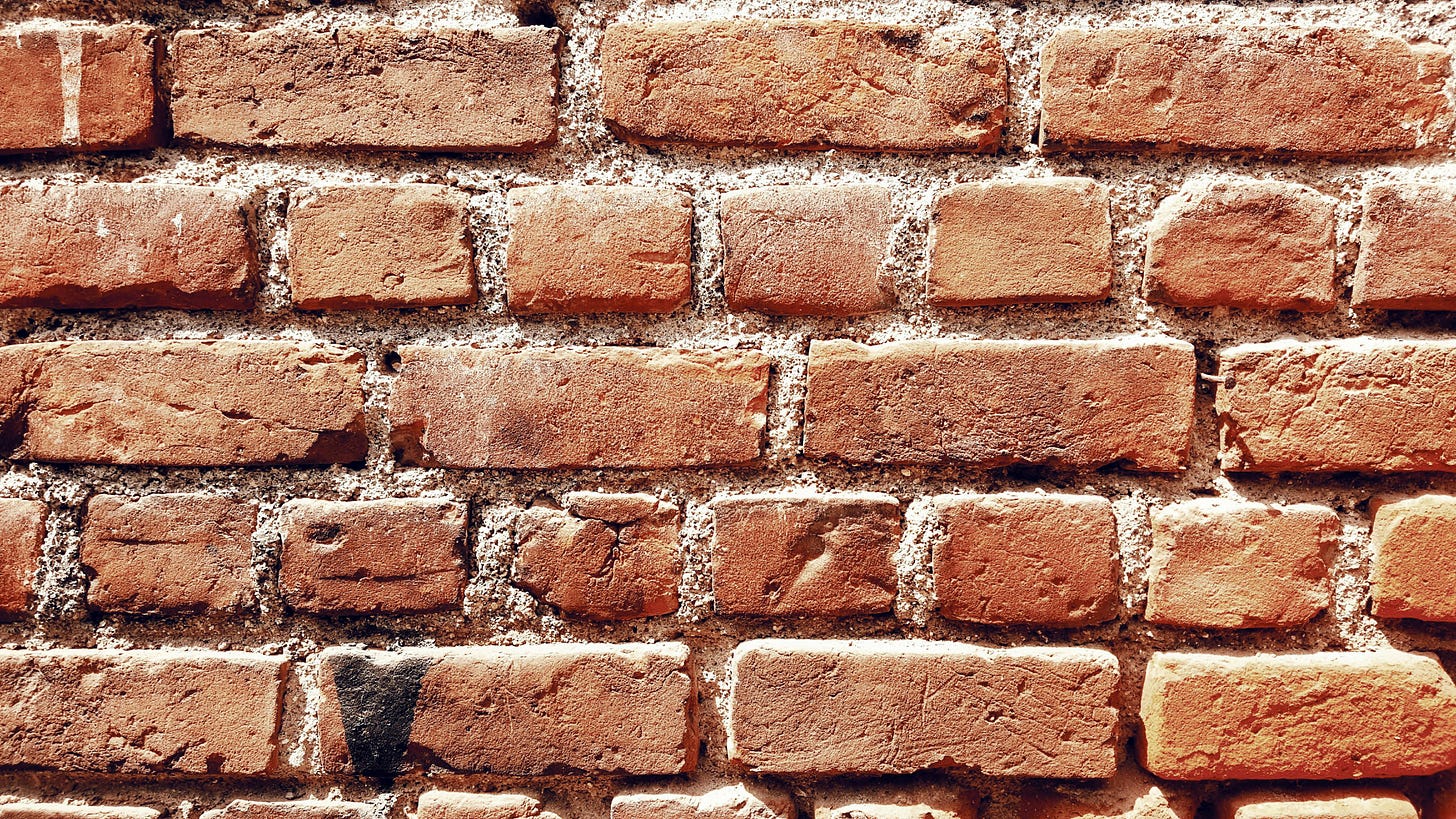Denial
How I learned it can serve us
Denial is Bad! (please keep reading—it’s not)
I always thought denial was bad and something that we should avoid. It wasn’t until I was I was 30 years old that I understood how it can help us.
Understanding How Denial Served My Mother
Before my family meeting,1 I had several preliminary therapy sessions with Karen. During one session, my therapist helped me understand my mother’s sophisticated denial system and how obliterating it could destroy her. It’s a tribute to Karen to how she helped me understand my mother. I left with a humble sense of compassion and respect for my mother.
It was not an easy session. You see, I wanted to take a wrecking ball to that wall of denial. Karen acknowledged my angst. My mother, the one I thought should have seen the abuse and stepped in to protect me, didn’t see it? How could she not have smelled the urine when she did the laundry? How could she have missed my tears and the jarring changes to my disposition and basic personality? How did she not understand how my permanent teeth were jarred loose?
Wrecking ball video courtesy of Pexels.com, and yes, I wanted to be the wrecking ball to the wall of my mother’s denial system.
My mother, the one I thought should have seen the abuse and stepped in to protect me, didn’t see it? How could she not have smelled the urine when she did the laundry? How could she have missed my tears and the jarring changes to my disposition and basic personality? How did she not understand how my permanent teeth were jarred loose?
My Mother’s Wall of Denial Sustained Her
I learned that my mother’s denial system was built carefully, piece by piece, brick by brick to enable her to live. To exist. To breath.
Karen explained many of those aspects of my mother’s life. Her tragedies. Her losses. How she’d survived. I couldn’t imagine a life uprooted by the Great Depression, the unknowing if they had shelter or enough food for the next meal. Then, saving every penny to go back to Norway, their home, to rebuild. And, then, barely escape as Hitler loomed in and destroyed their homeland. Not knowing what had happened to their family in Norway, and they struggled with the language here, the prejudice against immigrants in Utah, and then… a literal War Hero who helped his men take back the South Pacific from the Japanese during WWII chose her for his wife? And that War Hero turned out to have such demos of his own carried from the ravages of that war, that he hurt those he loved? She couldn’t see it. She had to build her bricks to live.
Karen helped me understand—with questions2. To see the sophisticated denial system my mother had build. To love her, yet convey my pain and how her blinders let me down.3
Adult Children of Alcoholics, have several common characteristics. One that I wore like a badge of honor was to become the parent of my parents. I took care of them. I lead. If I didn’t, they would die—or so I thought. To Karen’s credit, she navigated the particular therapeutic series of getting me to understand my mother’s denial without me adoring that role of “Oh, my poor mother, I have to take care of her.”
These sessions were enormously successful for me, because I walked away with a profound respect for my Mother’s denial system—and how it served her. While also maintaining my anger at her for not mothering me, protecting me especially when I was a little girl.
What I ask of you:
Understand that denial systems, particularly your own, are there for a reason. When you unveil one aspect of your own denial system, be gentle with yourself. Step back with a degree of introspection and try to understand how it served you. And, ask yourself if you still need it. I doubt you do.
When you encounter another, with a rather rigid denial system, please remember, it’s there for a reason. Be gentle. You don’t need to mock them or charge at them with the truth.
YOU ARE THE PRIORITY
The only time I request that you aggressively block or set a hard boundary with someone is when that other person is using their denial system to attack you, minimize your authenticity or worse. If you are encountering a perpetrator, I’m not even sure it’s a denial system coming at you. It’s worse. It’s probably a form of DARVO And for that, PROTECT YOURSELF. Reach out, get help. Call 9-1-1 or RAINN’s Help line: 800-656-HOPE.
This is the term I use to describe the extensive therapy session with my family of origin in which I disclosed my knowledge and process of working through the sexual abuse of my childhood. Paperdolls & Cowboy Boots delves extensively into this meeting.
I can only think of a couple of times, not in the therapeutic setting, that Karen ever “told” me anything. She lead with questions. Probing questions so that I could retrieve the answers myself.
Brick by brick with tender support and caution, my mother knocked almost every piece of her denial system down. All that and more is explained in Paperdolls & Cowboy Boots.




Thank you for this. I struggle with the role denial plays in survival — how necessary it can be, and how deeply it can shape some people.
There’s also an added complexity when a parent to a young kid struggles with alcohol dependence. Kids may be told things in intoxicated moments that can never be spoken of again — things later denied or forgotten — and so they’re left holding memories that no one else can acknowledge or clarify.